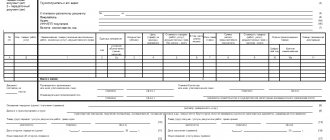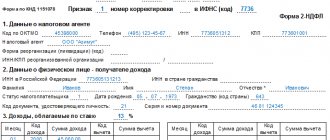When should the review begin?
You should not check employers before sending a resume if different sites are used for this and when such actions are performed several times a day. After all, until the last moment the user is not sure that the resume will be of interest to anyone. The response rate rarely gets high. Therefore, preliminary checks simply take time.
The employer can be checked already in the first stages of the search
At the first stages, the user becomes a seller of “himself”. You need to take a closer look at your partner only later, when it comes to preliminary agreements.
But some companies raise doubts already at the first stages - due to the lack of a website or unreliable information.
How to check an employer at first contact
In this case we are talking about telephone interviews. It is especially important to learn how to work with companies where resumes were not initially sent. The following points deserve additional attention:
- Official name of the company, website availability . The first call should be the interlocutor’s attempts to hide some of this information. If the company is reputable and really cares about its reputation and clients, then there is no reason to hide anything.
- Description of the position, related duties or functions . Adequate recruiters who get in touch themselves immediately name the position and indicate exactly what kind of work will have to be done.
The main thing is to receive clear and concise information. If they don’t give it, then you should refuse at the first stage. It is not recommended to agree when, instead of clear answers, you are invited to go straight for an interview. The results of such events are rarely satisfactory.
Find out 30 signs that your employer is deceiving you in this video:
How an employer checks you for lice
Personnel and recruiting agencies claim that the vast majority of applicants embellish their own biographical data. It is not surprising that employers do not blindly trust them, but check any information received from a candidate for a position.
Why do applicants lie? What worries the employer so much that he rushes to check the information? What and how do you most often have to “clarify”?
Fake information
Experts identify several main reasons for the distortion of personal information. These include:
- thoughtless preparation of a resume based on a sample;
- the desire to get a good position;
- heightened self-esteem;
- desire to appear better;
- "for the love of art."
As a rule, information regarding education and work experience is checked - it is these sections of the resume that applicants most often “correct” for the better. Therefore, a request to show a diploma, a certificate of completion of courses or an entry in the work book often gives an unpleasant result for the applicant.
Often, a person who ascribes to himself non-existent qualities and work experience is brought to light at the first interview. And employers never cease to be surprised that applicants lie about things that are simply verifiable. For example, a candidate for a position confidently declares “fluent English,” but it turns out that “knowledge” is limited to “My name is Lena. I live in Kyiv."
It is noteworthy that not every lie hides malicious intent - often the candidate himself is completely unaware of the level of his professionalism. For example, “proficiency in accounting programs” may in fact mean that at her previous job the girl copied numbers from paper statements into electronic spreadsheets.
Where do the signals come from?
As you know, a person never has a second chance to make a first impression, and this circumstance often plays against the applicant. The interviewed recruiters and employers named the main points that can become reasons for caution at the first meeting:
- discrepancies between entries in the work book and entries in the resume;
- discrepancies between entries in the work record book and resume and the oral “presentation”;
- gaps in your resume;
- excessive verbosity;
- discrepancies between age and work experience;
- a large number of diplomas;
- a large number of titles and regalia;
- concealment of information about previous place of work;
- serious demotion at previous place of work;
- criticism of previous managers and colleagues;
- attributing to oneself all the merits at the previous place of work;
- lack of results at the previous place of work;
- focusing on your high professionalism;
- lack of contact numbers.
It is important not only “what you say,” but also “how you say it,” psychologists say. Close observation of the candidate's non-verbal manifestations - facial expressions, gestures, intonations, posture, prolonged pauses - also allows us to draw conclusions about the degree of his truthfulness.
Test or practical task?
Often, recruiters and personnel selection specialists, in an effort to “find out the truth,” use a variety of psychological and psychodiagnostic tests, IQ tests, stress interviews, and even lie detectors. However, such “checks” do not arouse enthusiasm among successful candidates for middle and, especially, senior management positions. It is quite possible that the candidate will pass such a humiliating test, but ultimately refuse the position.
According to some experts, the use of such tests and checks should be reduced to a minimum. An alternative to tests can be a practical task, which allows you to determine the candidate’s commitment and diligence, assess the level of his professional training and draw a conclusion about how important this work is for him.
Concluding the topic of tests, I will note an interesting point for applicants. If you refuse to take a polygraph test, your candidacy will most likely not even be considered. But if you agreed, it is not at all a fact that you will have to “get acquainted” with a lie detector. In most cases, the test is the very question of whether you agree to undergo such a test in principle, because most companies simply do not have the necessary equipment and specialists!
Internet versus applicant
A UK study found that one in five UK employers use the internet to vet job candidates, with two thirds admitting that information found on social media influences their final hiring decision.
Unlike the British, domestic specialists are not inclined to blindly trust Odnoklassniki. Such methods do not always give the expected result. For example, workers in the medical, financial, and banking sectors are quite passive on social networks, so collecting and checking information in this way is problematic in this case. But if we are talking about marketers, sellers, and businessmen, then this really makes sense.
The higher the position, the more serious the check
If just a few years ago employers undertook isolated inspections, today almost everyone is inspected. The differences are only in the levels of checks. Applicants for key positions and employees who will subsequently have access to confidential information are checked most thoroughly.
The most effective result is obtained by checking references from all previous places of work. It is extremely important to ask questions:
- former manager;
- former subordinate;
- a former colleague of equal rank.
If among your previous places of work there were companies that have already closed or almost all of their staff have changed, it is more difficult to check references. In this case, it is important to collect as many recommendations as possible from other places of work. At the same time, specialists giving recommendations should not be on friendly terms with the applicant. This is quite easy to do. When taking from the candidate the phone numbers of people who could recommend him, immediately warn that, most likely, we will interview other colleagues who have crossed paths with him at work.
I believe - I don't believe
Initially, the employer is still based on the fact that the candidate is telling the truth, so there is no point in checking every word. However, any information that raises the slightest doubt is verified. When checking, any methods are used - from personal connections to the involvement of the company’s own security service.
It is noteworthy that if a recruiter learns about friction or conflicts of an applicant at a previous place of work, this is not at all a guarantee of a 100% refusal. HR officers are well aware that the employer is not always right, which means that the impression of the candidate received during the interview will play a decisive role. On the other hand, aspects of the applicant’s biography that are not directly related to work, such as problems with the bank, participation in an accident, and even frequent sick leave at a previous place of work, can harm the applicant.
To summarize, let's say that employers have checked, are checking and will continue to check the information provided by the applicant. For they, better than anyone else, know the simple truth: a person is never as close to perfection as when applying for a job.
Natalya Michkovskaya Based on materials from NOW
We study the company's reputation in the market
At the first interview, direct offers are rarely made. You will most likely have to come again. There is no better time to try to get even more information. There are several ways to conduct additional verification.
- One option is to contact all your friends who may have had some contact with the company . After all, this is how you can learn about the impression that comes from communicating with people working on site. If employees are dissatisfied with the work environment, then they will take the negativity outside the close circle - when communicating with clients and providing service.
- Studying reviews online . Some of them will definitely be fake. At the same time, there are always reviews describing negative experiences. But still, such information makes it easier to build an overall picture. Quite a lot of blacklists of employers have been created. If a company ranks in most of them, this is a serious reason to think about it.
How to choose a reliable employer (REA)?
Check the agency in accessible ways. And we will tell you which ones.
Method No. 1. Register of accredited PrEA
From January 1, 2020, only accredited private employment agencies (PEA) can provide labor for workers (personnel). Therefore, the first thing you do is check whether the potential employer is registered in the “Register of Accredited Private Enterprises” on our website. LLC ChAZ "Volga Region Plants - Shift" is number 21 on the list.
Method number 2. Official website
Carefully study the agency's website. It is desirable that detailed information about the company, scans of documents, reviews of partners, workers, vacancies with a full description of conditions and requirements be posted there.
Method number 3. Reviews about the employer
Let's assume that PrEA is accredited and the site is in order. It's not over yet. Type “agency name, reviews” in the search bar and study them carefully. If there are a lot of negative reviews and specific facts are provided, is it worth the risk? But if only positive reviews are posted about the agency, this is also a reason to think about it. It doesn't happen like that! Remember yourself: when did you thank your employer for a shift assignment given on time and a salary without delays, for work clothes and a replaced tool that failed in the middle of the working day? But we love to complain, and with pleasure. And also - to make a mischief for dismissal “for nothing” or for a fine “I didn’t drink today, it’s from yesterday.” So, read more carefully and analyze your impressions.
Method No. 4. Responsible taxpayer
If you are satisfied with the reviews, it would not hurt to check the agency through the Federal Tax Service (FTS of Russia). This is easy to do:
- Go to the website of the Federal Tax Service of Russia in the section “Business risks: check yourself and your counterparty”, enter the full name of the legal entity or INN/OGRN and get complete information.
- The question arises: where can I get the TIN/OGRN of the agency? Enter the name of PrEA in the search bar and copy the necessary information from a service that provides brief registration information about companies (be sure to check the legal address so as not to end up with a company with a similar name).
Method number 5. Legitimate activity
Be sure to check the agency's caseload. To do this, go to the website of the Arbitration Court of the Russian Federation in the section “Card Index of Arbitration Cases”, enter the name of the legal entity. persons or TIN/OGRN and receive information about court cases in which the company took part as a plaintiff or defendant.
Method number 6. No tax debts
Don’t forget to check the enforcement agency: go to the website of the Federal Bailiff Service (FSSP RF), enable the advanced search on the “Find out about your debts” page, enter the agency’s name, address (if you know), region and carefully study the information received.
Method number 7. Agency documents
And also, request copies of documents that are freely available directly from the agency. It is your right to familiarize yourself with them before coming to work.
Regarding the judicial history
You can try to look for court decisions described in various sources. This is easily done using the Internet; information is provided on completed cases or those in progress.
It is possible to find court decisions regarding the employer in question
It will not be superfluous to study reference and information systems. It is enough to enter the appropriate queries.
Inspection of the employer at the initiative of the court
Although the court is not a body that supervises or controls the actions of the employer, this body is also entrusted with functions through which it can influence the actions of the employer in addition to the court decision.
Thus, if the court considers labor disputes with employees and the employer, if obvious violations of the legislation of the Russian Federation, and possibly signs of an illegal act, are established in the activities of the enterprise.
In such cases, the judicial authorities are not deprived of the right to issue private rulings in relation to these persons, which are sent either to law enforcement or regulatory authorities to resolve the issue of conducting an appropriate inspection and bringing the employer to liability established by law.
ATTENTION: watch the video on the topic of protecting the labor rights of an employee, and also subscribe to our YouTube channel to be able to receive free online legal advice through comments on the video.
What other method can be used?
There are additional signs by which we can draw a conclusion regarding a particular enterprise:
- Inability to reach someone on the specified phone number. Or when they switch from one interlocutor to another. If the situation continues for more than 10 minutes, this is a reason to be wary.
- The company cannot be found at the address provided. The reason is not that the client is lost, but because of mistakes made when drawing up accompanying documents.
- Chaos in the office or, conversely, maintaining silence.
Unfavorable employers: ways to check an employer on the “black” list
The Internet provides many opportunities to access information that, under other circumstances, a company dishonest in its activities would be able to conceal. “Word of mouth” among hired workers does not sleep. Quite a few of them had the opportunity to personally encounter unreliable companies, and they hastened to share such negative experiences on specialized web portals - to warn those whom fate would lead to the same potential employer. Even before going to the proposed interview, you should make sure that the person who invited you is not on the “black” list. Antijob or Blackjob will be useful for metropolitan residents. A wider geographical audience is covered by ORabote, where companies are sorted by the date they were added to the shameful top list. Shefdostal is dedicated to Russian, some Ukrainian, Belarusian, and a number of Central Asian employers.
Additional recommendations
You can also study file cabinets dedicated to arbitration cases. There is information on both completed processes and those still in production.
Legal reference systems will help you find court decisions. It will be enough to use the company name to organize the search.
Who is the employer? It can be either side:
- plaintiff;
- the defendant;
- interested person.
The grounds and outcome of the case are no less important. If a lot of controversial situations have occurred in a company in a short time, it means that problems arise with debugging some processes.
Regarding the processing of personal data
Personal and family secrets, privacy, protection of honor and good name are rights that every citizen has. Such information cannot be processed unless the other party gives consent.
Personal data of potential employees must be stored in accordance with the law
Even if the applicant is not yet an employee of the company. This must be taken into account before conducting interviews; other behavior options are considered illegal. Violations are subject to liability, including disciplinary and administrative ones.
What documents may be requested?
The law does not provide clear guidance on this issue. The Labor Code speaks only about those papers that are required to be submitted to start work. Without them, it becomes impossible to formalize labor relations. Therefore, management has the right to familiarize themselves with such papers during the interview.
The main documents consist of the following items:
- information about education, qualification level, availability of relevant requirements;
- military registration, if a citizen is subject to conscription;
- insurance certificate of participation in the state program;
- work book (exception - when the agreement is concluded for the first time);
- passport or other type of identification documents.
At the same time, it is unacceptable to make photocopies of any papers without the consent of the candidates.
Inspection of the employer by the labor inspectorate based on an employee complaint
If labor rights are violated, the employee has the right to file a complaint against the employer with the State Labor Inspectorate, on the basis of which the labor inspectorate appoints and conducts an unscheduled inspection of the employing organization.
Stage-1. Filing a complaint to the State Tax Inspectorate
The current legislation does not establish a form according to which an employee is obliged to file a complaint with the State Labor Inspectorate, so the document can be drawn up in free form, indicating:
- the name of the State Tax Inspectorate body to which the application is submitted;
- information about the applicant (full name, address, contact telephone number);
- date of application.
When filing a complaint, the employee must:
- indicate the place of work (position, structural unit, full name of the employer), the basis of the employment relationship (employment contract No.___ dated ____);
- state the essence of the claim, based on specific facts (for example, wages for May 2020 were paid with a delay of 20 days) and referring to regulatory documents (LC, TC, Civil Code, etc.);
- attach documentary grounds confirming the employer’s violation of the employee’s labor rights (for example, a bank statement with information about the payment of wages later than the period established by the employment contract).
To recognize the complaint as valid, it is necessary to have the employee’s handwritten signature on the document.
A sample complaint to the State Labor Inspectorate can be downloaded here ⇒ Sample complaint to the labor inspectorate.
An employee can file a complaint by personally going to the territorial body of the State Labor Inspectorate, or by filling out an electronic application on the labor inspectorate website (https://onlineinspektsiya.rf).
The deadline for filing a complaint with the State Labor Inspectorate is no later than the expiration of 3 months from the moment the employee learned of a violation of his own labor rights.
Stage-2. Schedule an unscheduled inspection
The State Tax Inspectorate considers an application from an employee within 30 calendar days from the date of application (complaints about illegal dismissal - within 10 days).
After the expiration of the established period, the State Tax Inspectorate appoints an unscheduled inspection of the employer, and sends a written response to the employee about the action taken in relation to the complaint received.
In general, the State Inspectorate is obliged to notify the employer of an unscheduled inspection no later than 24 hours before its start. At the same time, the labor inspectorate may not notify the employer if an unscheduled inspection is appointed in connection with:
- causing harm to an employee’s health through the fault of the employer;
- evasion of the employer from drawing up an employment contract, improper registration of labor relations, etc.
This procedure is enshrined in Art. 360 Labor Code of the Russian Federation.
Allowed Questions
The manager has the right to pay attention only to business qualities. Therefore, it is allowed to ask questions related to immediate responsibilities.
That is, they must be related to the candidate’s professional achievements and career. This applies to length of service, reasons for dismissals, duration of work at the previous place, and so on.
Personal questions and insults will not be tolerated. Even if this is required by the rules of the so-called stress interview.
About the questionnaires
Filling out questionnaires is a standard procedure that is used by many managers. This tool solves several problems:
- compact storage of all information;
- ordering;
- obtaining maximum information about the applicant.
Filling out the application form when applying for a job is not mandatory.
The questionnaire is not considered a mandatory document when drawing up employment agreements. You cannot demand its completion or threaten dismissal if you refuse, or the inability to consider the application.










